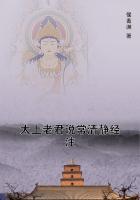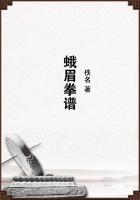The dissolution of the patriarchal family will perhaps bring about that of the village community, because it is in the union ofthe domestic hearth that the habits of fraternity, the indifference to individual interest, and the communist sentiments, whichpreserve the collective property of the mir , are developed. Formerly, the method of overcoming the resistance of obstinatemembers or of getting rid of incorrigible idlers was to hand them over for the conscription. The fathers of families, inconjunction with the starosta , thus purged the community of all recalcitrants. It is the habit of submission to the despoticauthority of the father which has given the Russian people the spirit of obedience, of self-denial, and gentleness,characteristic of them.
How marked is the contrast between the Russian and the American! The latter, eager for change and action, a thirst forgain, always discontented with his position, always in search of novelty, freed from parental authority in his earliest years,accustomed to count on no one but himself and to obey nothing but the law, which be has himself helped to make, is afinished type of individualism. The Russian, on the contrary, resigned to his lot, attached to ancient tradition, always readyto obey the orders of his superiors, full of veneration for his priests and his emperor, and content with an existence, which henever seeks to improve, -- is perhaps happier and more light-hearted than the enterprising and unsettled Yankee, in the midstof his riches and his progress.
Animated discussions have been raised recently as to the origin of the community of lands, which is the actual basis of the mir . The Russian Patriots see in it "the primordial institution" of the great Slavonic race. This opinion, propagated in Europeby the writings of the Baron de Haxthausen, was admitted without dispute, until Tchitcherine and Bistram (11) latelymaintained a directly opposite theory. According to them, the peasants, up to the end of the sixteenth century, were free andindependent owners of the land they cultivated. They made terms with the lord as to the rent to be paid, and sold, inherited,let or bequeathed their holdings, without any interference of communal or seignorial authority. Community of land andperiodical partition were unknown. The commune exercised no supervision over its members. The independence of thepeasants, however, suited neither the sovereign, who wanted taxes and soldiers, nor the lords, who required hands tocultivate their land. Ankase of Czar Fedor Ivanovitch, in 1592, attached the peasants to the soil. The lords establishedregisters, in which were enrolled all the labourers living on the land, which they regarded as their domain; and the peasantswere forbidden to remove without permission. Later laws of Boris Godunof introduced serfage definitely. Under Peter I thepoll-tax on every male inhabitant, the joint responsibility of the commune for the payment of taxes and for providingrecruits, and the census, induced the peasants to put their lands in community, and to divide them in proportion to theworking hands, that each might be in a position to contribute to the communal expenses, in proportion to his strength.
"Agrarian community," says M. Tchitcherine in conclusion, "was the product of slavery; it will disappear with it beforeliberty."
The theory of MM. Tchitcherine and Bistram was strongly opposed by Professor J. Belazew in the Russkaja Besseda . --According to this writer, the Russian commune with periodic partition of the soil has existed from the earliest times, being inconformity with the genius of the Slav race. Families, which could cultivate more land and pay higher taxes had a largerportion allotted to them. No doubt, as Tchitcherine shews, private property did exist; it even predominated in certain partsof Russia. But we must not therefore conclude that it was the ordinary system. Common property was the rule. ProfessorHergei Ssolowzew (12) has lent the support of his authority to Belazew's opinion; and now it is generally admitted in Russianliterature, that collective property did exist in ancient Russia. The more accurate knowledge of the primitive history of theRussian commune is chiefly due to the researches of Professor Leschkow. (13) Originally the organization is found to beexactly the same as in the Germanic mark, under the name of werw in Southern Russia, and of pogost or guba further North.
In the Werw , the elders, or " centeniers ," administer justice and maintain order. But the partition of the collective domain,and all questions of importance, are decided in a general assembly. After the appearance of the Warègue princes, a territorialaristocracy sprang up; it usurped many of the lands occupied by poor cultivators, who remained free, but were bound tocertain services. The most ancient law of Russia, the Ruskaja Prawda , contains six articles to protect this class of occupiersfrom the exactions of their lords, and to regulate their condition. By the side of the cultivators, or co-partners of the mark,and the tenants of the seignorial lands, were a large number of independent proprietors, who sprang into existence in thefollowing way. The extent of unoccupied soil being very great, the settlers who brought it into cultivation acquired a lifeownership, and, in fact, even a kind of hereditary right in it. The same right exists in Java, where the system of collectiveproperty is in force under the same conditions as in Russia. The mode of cultivation employed by the settlers was thatalways practised when primitive forests are reclaimed. They built themselves a rough log-house, made so as to be moveable.















